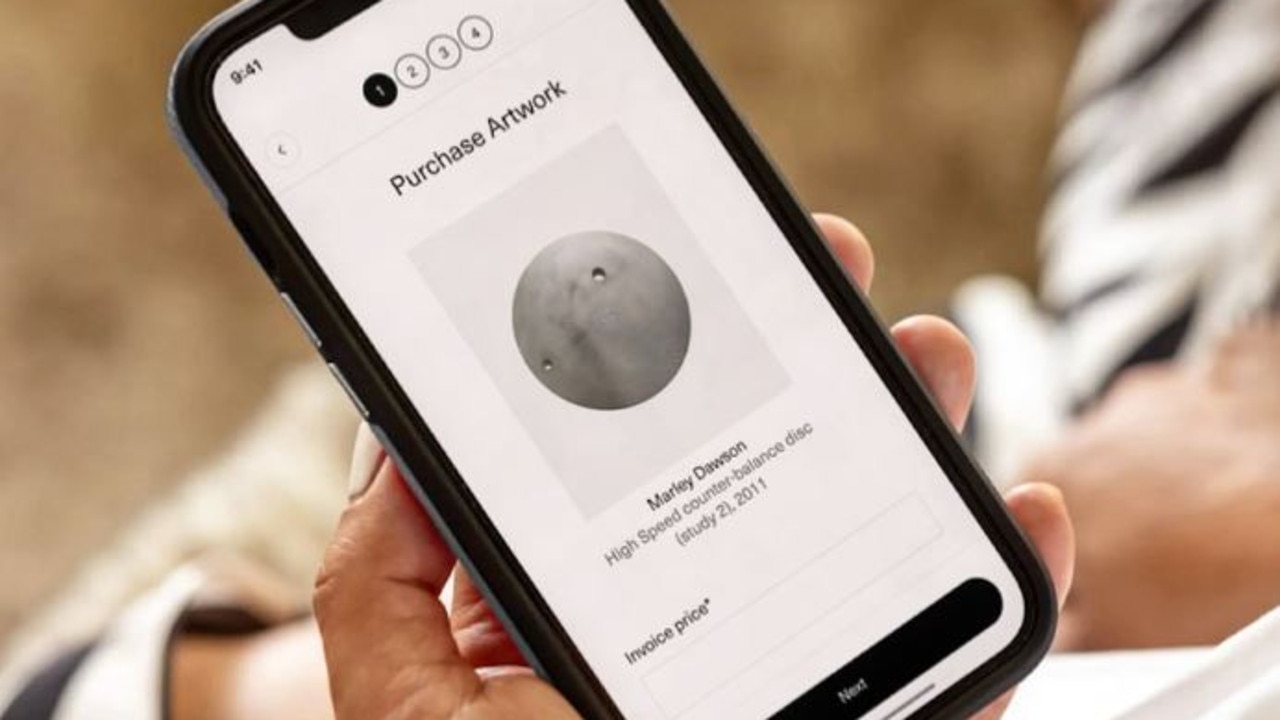
Art Money on brink of collapse as $100m Aussie fintech pauses operations

An Australian art fintech which was used in more than 50 countries and had secured $100 million in debt finance has suspended its operations indefinitely as it desperately scrambles to survive.
Over the weekend, Art Money announced to customers in an email titled ‘The Hardest News’ that the business made the “difficult decision” to “pause business operations”.
The company’s founder and CEO, Sydney-born Paul Becker, said he was looking to “recapitalise” the fintech and that he needed another US$5 million (A$7.6 million) to start making a profit.
“The business I founded, Art Money, has run out of operating capital and I’ve let down a lot of people who believed in it, and in me,” he wrote.
Art Money worked similarly to a buy now pay later application but specifically for the art world, where its customers could use the lending facility to help them buy an artwork ranging anywhere from $500 up to $1 million.
Mr Becker said that the indefinite shut down will mean new clients can’t apply for finance, and existing clients can’t make any more purchases.
“At least, for now,” he added.
He also said that, all galleries, artists and art sellers have been paid, or will be shortly
Similar to Afterpay, Art Money customers paid for artworks in 10 monthly instalments, with no interest.
And like other buy now pay later services, part of its business model saw Art Money pay sellers before they themselves received any money from the customer.
Art Money launched a decade ago and since then has managed to partner with more than 2000 art galleries around the world.
Its website claims that more than 20,000 artworks have been purchased thanks to its existence.
Art Money has an Australian credit licence and had secured $100 million in debt finance.
According to ASIC, it has a registered head office in Chippendale, Sydney.
As well as attracting attention from international galleries, Art Money had also facilitated more than 1,000 purchases from well-known fine art art auction houses including Christie’s and Sotheby’s.
In fact, Christie’s was one of the 135 investors who had invested $10 million into the business.
In an interview with The Australian Financial Review from last year, the founder, Mr Becker, said Art Money had landed art sales worth $US56 million ($83 million), with roughly 60 per cent from Australia.
Mr Becker said in the same interview that the highest purchase so far made through Art Money was for a painting in the US that sold for more than $500,000.
Unfortunately, amid the economic downturn impacting companies, Art Money has hit a critical point.
“Founders really only have 3 jobs,” Mr Becker wrote. “Set and communicate the vision. Build a great team. Don’t run out of money. After 10 years … I’ve fallen short on job #3.”
The lack of new funding meant he wasn’t able to keep paying the bills for the “operating side of the business”, which includes wages, technology and regulatory considerations.
Mr Becker went on to say that they were so close to becoming a profitable entity.
“Like any business that is pre-profitability, including most start-ups and early stage companies, investor funds are required to bridge the gap to profitability whether you are Uber or Amazon or Art Money,” he wrote. “We are around 18 months away from that.”
It comes as a number of other buy now later operators have also succumbed to the tough market conditions.
In February this year, Australian ASX-listed company OpenPay became the first BNPL service to collapse owing more than $66.1 million to creditors, $4.1 million in unpaid leave and wages to employees, and with just $1.2 million left as cash in the bank, according to reports.
OpenPay had not made any profit since its stock market debut.
In 2022, Afterpay reported suffering a $345 million loss. Afterpay chalked up $176.7 million in losses from taking on bad debts.
Last year, in June, Zip hit monthly profitability in Australia, the US and NZ for the first time ever.
Zip Co cut its statutory net loss to $413 million for the year to June 30, down from an eye-watering $1.1 billion the previous year.
alex.turner-cohen@news.com.au



